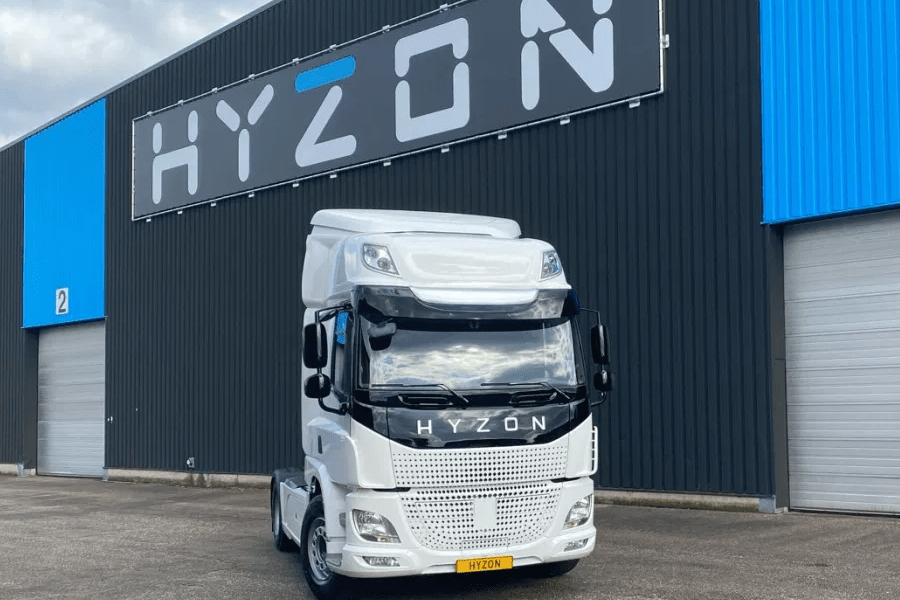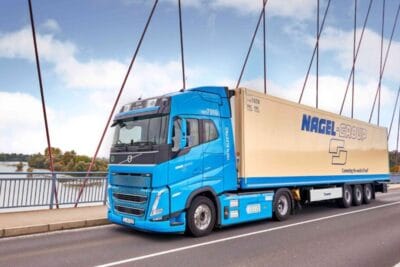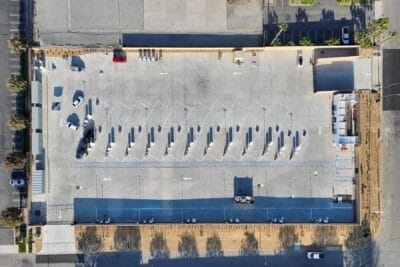Hyzon calls bluff on short seller trash-for-cash
The young and very international US-based fuel cell truck company Hyzon Motors has called ‘bluff’ on a short seller called Blue Orca.
In a detailed statement refuting each of the allegations made by Blue Orca, US-based company Hyzon Motors summarized: “The self-serving short seller report published by Blue Orca last week is inaccurate and misleading, and we believe it was intended solely to generate profits on Blue Orca’s short position at the expense of Hyzon’s long-term shareholders.”
As most people in the rapidly expanding zero-emission transport sector are now very acutely aware, short sellers often investigate new companies trying to break through in this disruptive sector. The short sellers then publish information that exposes any misleading statements or practices about the companies’ statements to shareholders, with the aim of devaluing their stock prices. The short sellers basically then bet on the share price dropping and rake in the cash. Best case scenario, the short sellers expose fraud and/or misleading information that companies have given shareholders (though questionably make a killing doing it), worst case, they needlessly take time, focus and money away from companies trying to push forward with decarbonising the transport industry.
More about the more prominent short selling cases shortly, but first to Blue Orca’s claims about Hyzon Motors. Unlike many of the young companies that have failed under the hungry eye of short sellers, Hyzon Motors – although indeed young and undoubtedly growing at a phenomenal speed – was founded by a company that already has 18 years of international fuel cell experience under its belt. Hyzon Motors is now headed by George Gu, Chairman and co-founder of the Singapore-based company Horizon Fuel Cell Technologies that specializes in fuel cell technologies as a now-established first-mover in a rapidly emerging and much-needed market for zero-emission trucks. The short of it is that, unlike the fairly thorough research of Hindenberg Research, which has indeed exposed some overly positive reports by electric vehicle makers, it really looks like Blue Orca have picked on the wrong guy.
Blue Orca catapulted some pretty serious claims at Hyzon Motors that were enough to send Hyzon shares down a whopping 35% – which must have made the short sellers some serious cash as intended. But it now seems to be that Blue Orca, not Hyzon Motors, didn’t do its homework. Among other claims, Bue Orca alleged that Hyzon’s recent customer Shanghai HongYun was a “fake company” that was formed just days before an announcement of a deal to supply up to 500 fuel-cell vehicles.
However, Hyzon has reiterated in its statement that “Hyzon is excited about its partnership with Shanghai Hydrogen HongYun Automotive Co., Ltd. (“Shanghai HongYun”), which is a special purpose entity seeking to provide third-party clean energy logistics services to corporate customers. Shanghai HongYun was established in the wake of the Shanghai government’s August 26, 2021 announcement that Shanghai would be among the first participants in China’s national hydrogen fuel cell vehicle pilot program.”
But even more, Hyzon goes on in detail to establish exactly where things stand, which is apparently in line with the statements they have made to their shareholders. But this is where the crunch comes: Hyzon also revealed that “Hyzon has no record of this short seller ever meeting with Hyzon management, requesting any information or clarification from Hyzon, or otherwise seeking to verify any of its claims, which would have been expected given the inflammatory and grossly inaccurate statements made in the report.”
Since the publication of Hyzon’s retorting statement last week, their shares rose as much as 16%.
This is not the first time that zero-emission vehicle manufacturer has been targeted by stock gamblers, as the previous examples of Nikola Lordstown Motors, Kandi and Tesla show. However, this has still been extremely damaging to, for example, fuel cell vehicle startup and Hyzon competitor Nikola, massively hindering the US company on its domestic market of much-needed long-haul fuel cell trucks, which is currently being blitzed by Korean legacy vehicle maker Hyundai.
With the rapid change happening across the transport sector investors should definitely have their eyes wide open to the wiles of hyped-up fraudsters, but this transition is going to take some courageous moves.
In best short answer to short-sellers yet was made by Tesla in the form of a what turned out to be quite a lucrative joke: Musk himself became a “short seller” via the Tesla online shop, with Tesla began selling Short Shorts (as in clothing) in Tesla red with the imprint S3XY. At the time our article was written about these sexy red, short shorts in June 2020, the Tesla Short Shorts were already sold out, despite the joke price of $69.420 – which pokes fun at Musk’s infamous 420 tweet.
The joke must have been particularly sweet for Tesla: The sale of the red, short shorts was so wildly successful that it temporarily brought down the Tesla website and almost immediately sold out of stock. Even more ludicrous (ba-boom) was that this came at a time when Tesla shares began enjoying an all-time and generally unprecedented high, marking a point when Tesla was trading on the stock exchange as the most valuable car manufacturer in the world.
hyzonmotors.com (statement), reuters.com





0 Comments